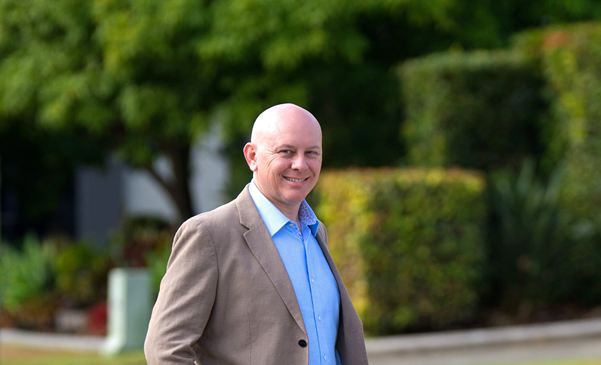While the unexpected impact of the COVID-19 outbreak on economies globally has sent shivers down the spine of property investors, it remains crucial to have the right investor mindset to weather the potential risks and stay on course.
Paul Wilson (pictured), founder and CEO of Income2Wealth, said investors need to maintain their perspective and keep their heads despite the concerning headlines.
"This doesn't mean you should be reckless. These events can be quite serious and require diligent consideration and appropriate actions — the emphasis here being on appropriate," he said in an exclusive interview with Your Investment Property.
Need for careful planning
Over the past few decades, the global economy had been subjected to potential risks due to a host of challenges, from a similar coronavirus outbreak in 2002 to the financial crisis in 2008. Despite these challenges, Wilson said the economy has continued to function and has, over time, corrected itself.
“Adopt the philosophy that this too shall pass,” Wilson said.
While investors do not have any control of the market drivers, they need to be able to react appropriately to the current COVID-19 outbreak.
"It's important to not bail out at the first sign of choppy waters," Wilson said. "Decisions shouldn't be made in a vacuum; weigh everything up as a whole before taking your next action. Don't run the risk of isolating yourself from your own wealth-creation goals."
When creating a plan, it is vital to have some flexibility to allow for the mitigation of potential risks ahead. Wilson said investors should always have a long-term plan for their wealth creation goals, how they will achieve them, and in what time frame.
"Investments like property, for example, are a long-term growth asset class — not something you want to be offloading in a year or two without having realised the long-term capital growth," he said.
Also read: Will COVID-19 Affect Housing Approvals?

Property investing strategy
Wilson believes that markets will always have a period of fluctuation no matter how the forecast looks in the next five to 10 years. The level at which things will fluctuate will be heavily influenced by supply, demand, and market sentiment — all of which are uncontrollable variables.
"Whichever strategy you select, it all ultimately boils down to the importance of understanding the purpose of the investment, as this will underpin the reason why you'd pick one particular property and location over another," he said.
For property investors who are looking to adopt a traditional buy-and-hold strategy, Wilson said it is critical that they select properties that will not put a drain on their after-tax cash-flow. A more active investor, on the other hand, could go for a more short-term or "get in, get out, rinse, and repeat" strategy.
Investors need to understand that capital growth should be the main focus of wealth creation. Several factors should be considered when analysing the capital-growth potential of properties, including supply and demand, identified growth drivers of employment and population growth, as well as government and private-sector investment into infrastructure.
"It's important to know that there are always markets within markets and with the uncertainty being experienced at the moment, combined with the loss of wealth by some investors who can't hold on to recover from their stock-market losses following the impact of the coronavirus on the worlds financial markets, you might find, if you look hard enough, that there will be a few motivated sellers out there trying to shuffle their portfolios around," Wilson said.
For property investors, the COVID-19 outbreak could present an opportunity to buy a home and expand their portfolio.
The cost of not investing
Wilson said the current conditions present an opportunity for people to invest. While discipline is important in making decisions, it is also as crucial to weigh up the cost of not investing.
"By not taking any action investors may think they are being prudent in protecting their wealth goals. However, overreacting, selling off or buying out of desperation or simply hoarding funds or letting them stagnant in a bank account can be more costly in the long run than many investors realise," he said.
This is particularly true in the current low-interest-rate environment. Wilson said the money people have today might not be able to keep up as inflation shrinks their purchasing power.
"Money sitting idle anywhere is never a good idea. It needs to be a living, breathing entity — moving and growing at all times, otherwise it withers and dies. Make your decisions clearly and based on the numbers — tie this in with your overall plan to ensure that you anchor your investments on the fundamentals that will see you through turbulent times," Wilson said.